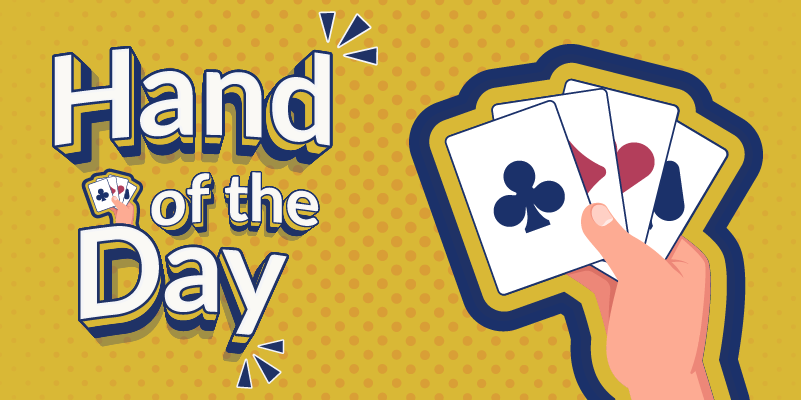



The Aces On Bridge by Bobby Wolff
Tackle this deal as a play problem from the South chair.
Opening Lead: ♣Q
When North makes a support double of one spade, showing precisely three hearts, you jump to three hearts, invitational. North ploughs on to game. You receive the club queen lead to four hearts. Plan the play.
The club ace is certainly offside on this lead, so you can count two club losers and at least one heart loser. You must pick up the trumps whilst avoiding a spade loser on the way. Given time, you can discard a spade on one of the minor suits, but if East gains the lead quickly, a spade shift through your queen would surely spell defeat. West figures to hold the king for his overcall, after all, especially when he does not lead the suit to the first trick.
If you were to cover the club queen in dummy, East would win and switch to spades and as we have seen, that will lead to near-instant defeat. You must play small from table instead, at trick one.
East cannot afford to overtake, or he loses his side’s second trick in that suit. However, when he plays small, you can insert the club 10 on the second club, forcing the ace and establishing dummy’s club king for a spade discard. Later, you will play ace and another heart (arguing that East is unlikely to have both heart honors and three spades, or he would have bid, while if West had six spades and a singleton heart he might have preempted. Hence West must have a trump honor.)
Lead with the Aces
Answer: Lead the ♣Q
Suit-contract games should be attacked unless you have reason to believe the opponents are limited or the cards are lying badly for them. This is not the situation, so lead from your honor sequence in clubs. It is certainly possible that a spade might work better – either if it is passive or if it sets up partner’s suit. Equally, a club needs very little from partner to be best.




Agree with clubs, but would have lead the K.
Is Q of clubs intended to disguise the King?